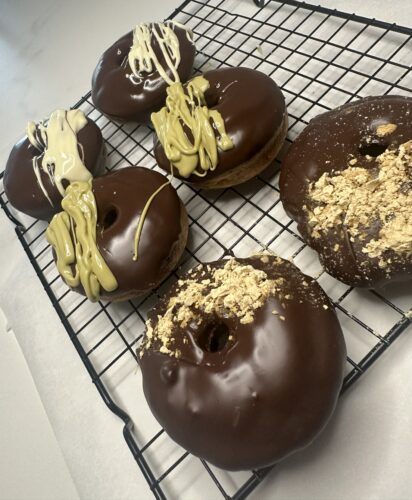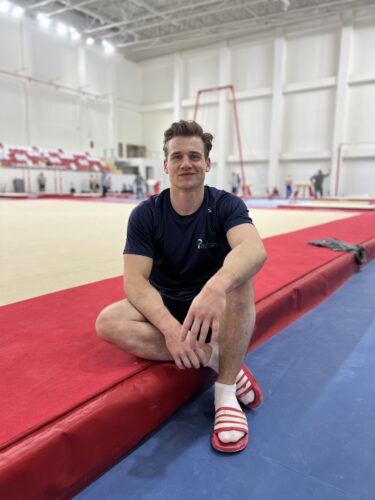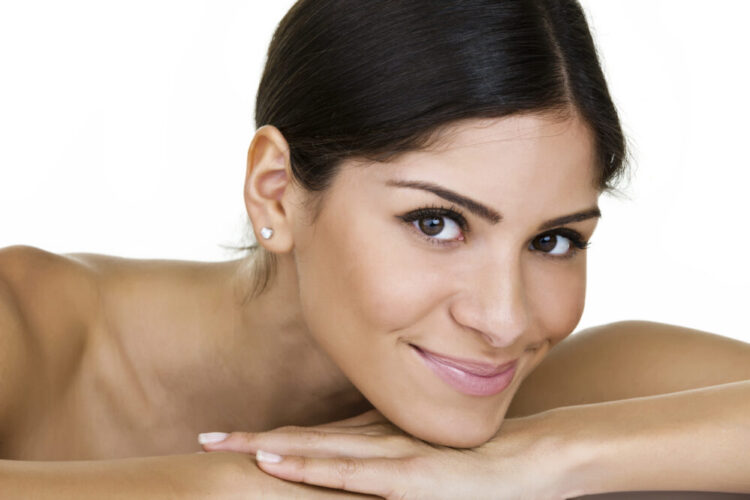YES, IT DOES: THE BEST WAY TO CARE FOR YOUR SKIN DEPENDS ON WHERE YOU’RE FROM
While more of us are starting to take care of the health of our skin, many of us are unaware of some of the factors that make our skin unique. In this article, we explore how skin type and ethnicity can impact the visible signs of aging, before offering 6 tips for keeping your skin looking fresh and youthful.
How many skin groups are there?
Generally speaking, skin can be categorized into four broad groups: African/American, Asian, Caucasian, and Hispanic/Latino. It is important to note that each of these categories is heterogeneous, so we need to avoid over-generalizing. At the same time, awareness of these four skin groups can help us understand better how much and how our skin is affected by age, depending on our genetic and ethnic background.
What important skin differences are there?
One of the most obvious variations across the four skin groups is skin color. In simple terms, skin color is determined by the amount of melanin in the skin. Caucasians, for example, tend to have a lower amount of melanin, which leads to a lighter skin tone. This can make Caucasians more susceptible to pronounced photoaging, the premature appearance of aging due to damage caused ultraviolet (UV) rays. Darker skin tones have a higher melanin content, which provides stronger photoprotection, leading to less photoaging. The melanin in darker skins, on the other hand, can be unstable, making these skin groups more prone to dyspigmentation, or abnormalities in the formation or distribution of pigment.
There are other differences. For example, Caucasian skin is fragile, usually showing an earlier loss of elastin and collagen fiber structure, which causes wrinkles. Darker skin tones have a compact dermis in the deep layer of the skin, with more active cells and a stronger collagen network. Because of this, dark-skinned people typically do not start wrinkling until 10 to 20 years later.
Which signs of aging do different skin types show?
As a result of these and many other differences, each skin group presents signs of aging in distinct ways. For example:
● In lighter skin tones, such as Caucasian skin, one of the major concerns is the formation and appearance of wrinkles;
● For East Asians, dark spots, or hyperpigmentation, can appear on the light skin;
● For people of Hispanic descent, the formation of pronounced nasolabial folds, or ‘smile lines’, can be a concern;
● In darker skin, for example, in people of African origin, heterogeneous pigmentation can be an issue, creating marks or an uneven tone.
Are scientists researching skincare and ethnicity?
Apart from our ethnic background, each one of us has a unique genetic makeup. This means our skin will be affected by aging in different and often unique ways throughout our lives. All of this confirms that as we investigate the effect of aging on the skin, it is pivotal that we take skin type and ethnicity into account. In our latest study, we made this a priority: by conducting it in Brazil, we were able to study a mixed population with a wide range of ethnicities and skin types. Investing in scientific research of this nature will help us build a better picture of the range of unique skin types in our world – and help you take better care of the health of your skin.
How can I slow down signs of aging? 6 practical tips
Your skin is unique, and how it changes over time will depend on your genetics and ethnic background. While aging is a natural process, there are general tips we can all follow to limit extrinsic aging – the signs of aging that are caused by our environment and lifestyle. Integrating the five tips below in your lifestyle can reduce the visible impact of these external factors on your skin, and help to keep your skin looking youthful as you age. See below tips inspired from American Academy of Dermatology:
1.Protect yourself from the sun every day: wear a hat, cover up, stay in the shade or use sun protection factor (SPF) 30+.
2. Maintain a healthy, balanced diet: consuming more fruit and vegetables, less sugary or high-carb foods, and less alcohol can keep your skin looking younger.
3. Exercise often: studies suggest that consistent exercise can improve your immune system and increase circulation, helping to keep your skin fresh.
4. Keep up with your skincare routine: moisturize every day, wash your skin gently, wash your face after sweating, make sure all products you use are safe and do not irritate your skin, apply SPF 30+ when exposed to the sun.
5. Avoid repetitive expression: frequently repeating facial expressions, such as squinting, creates permanent lines as you contract the underlying muscles. Limiting these expressions and movements can help you stay wrinkle-free.
6. Nourish your skin from within: some ingredients will help your skin remain hydrated and look youthful. Vitamins, minerals and also collagen peptides can help. Find out more about the science behind collagen peptides.
At Peptan, we create natural ingredients used in many skincare products around the world. For ideas, check our Where to buy page.
Recent articles
82 items

28 Nov 2025
CAN COLLAGEN HANDLE THE HEAT? WHY PEPTAN’...
Hot beverages and baked goods enriched with functional ingredients, such as collagen peptides, offer manufacturers a unique opportunity to deliver tasty, nutritional products with holistic health bene...

11 Nov 2025
Healthy Protein Donuts Recipe with Peptan Collagen
Discover a delicious recipe using Peptan® Collagen. Support skin beauty, mobility and healthy ageing from within with every bite....

08 May 2025
Outer Beauty Begins from Within
Health and beauty are intrinsically connected. Taking care of our inner well-being is reflected in our outer appearance. For this reason, I have incorporated Peptan collagen into my daily routine for ...

01 Aug 2024
SKIN INSIGHTS FROM DERMATOLOGIST DR. RENITA RAJAN
Every person’s skin is a beautiful, unique puzzle waiting to be solved. As natural beauty solutions move to center stage, we turned to one of the leading voices in cosmetic dermatology: Dr. Renita R...

11 Jul 2024
OLYMPIC GYMNAST NOAH KUAVITA ON DEDICATION, SPORTS ...
For 9-year-old Noah Kuavita, watching the opening ceremony of the Beijing Olympics on TV in 2008 awakened a dream: one day, he wanted to be a part of the Games himself. That day has almost come: when ...

27 Jun 2024
OLYMPIC GYMNAST LUKA: ON THE ROAD TO WIN
Luka van den Keybus is one of three male Belgian gymnasts competing in the 2024 Paris Olympics this summer. We spoke with Luka about his mental and physical preparation for this peak event, and about ...


